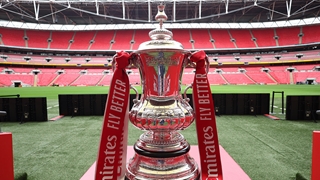
"Life has changed massively,” says Josh Deegan, who has lost eight stone thanks to playing grassroots football in the last two years.
“I’m more confident now, I’m happier, I’m healthier and my outlook on everything is a lot more positive. The dark cloud has been lifted.”
For Matt Legg, football has been a similar saviour as he used his love for the beautiful game in his fight against depression.
"I used football to get my confidence back,” revealed Legg, who also set up FC Not Alone to help others in a similar position.
"There are scientific benefits of playing football and exercising, the endorphins help you feel better.”
Both Josh and Matt believe football has helped their health and mental wellbeing, and are among the 12 million people playing grassroots football in England.
With over eight million of them being adults, we’ve sought to understand the social and economic value of the adult grassroots game, in which no-one is paid to play and no-one pays to watch.
In what is the largest study of this type to date for a National Governing Body in the UK, we canvassed approximately 9000 participants to provide a nationally-representative sample that allows for robust statistical analysis.
And our report has shown just how valuable grassroots football is for both the health of individuals and the nation, saving the NHS over £43 million per year through reduced GP visits as well as contributing a total of £10.769 billion to the UK economy.
FIND OUT WHERE TO PLAY FOOTBALL NEAR YOUWith approximately £1 million spent by the FA every week in supporting the grassroots game, it represents a considerable return of almost £11 billion from an annual investment of £52 million.
The average £326 annual spend of a regular grassroots footballer, on things such as boots and kit, pitch hire and socialising, also means a tax contribution to the Exchequer of £410 million a year.
“Grassroots football is ingrained and embedded in many local communities and, as this important report shows, it makes substantial contributions to the economy and to the quality of life of those who play the game,” says Michael Kitson, an economist at Judge Business School at Cambridge University.
“Grassroots football in England is evolving and developing: there are rising rates of female participation, new formats of the game and new opportunities to participate.
“This report shows the significant impact that playing football, in all its forms, has on the economy and on the quality of life of those playing the game.
“It has frequently been argued that playing football improves health, social engagement and self-efficacy.
“This report not only provides rigorous support for many of these benefits, it also provides quantitative estimates of the impacts which show the substantial social return from playing football.
“Although measuring direct economic impacts is important, this does not fully capture how activities, such as playing football, may influence the quality of life.
“Those who play football report significantly higher levels of general health, happiness, confidence and trust compared to those who do not play sport.
“Participating in football is associated with improved physical and psychological health. Regular footballers are healthier than those who do not play the game, and this means that they visit the doctor less often.”









